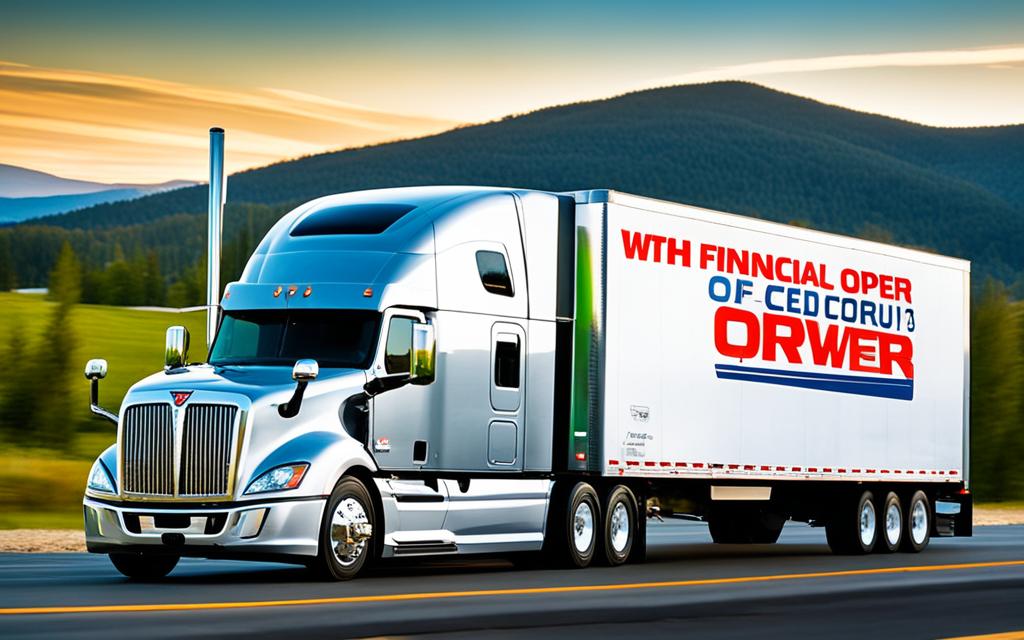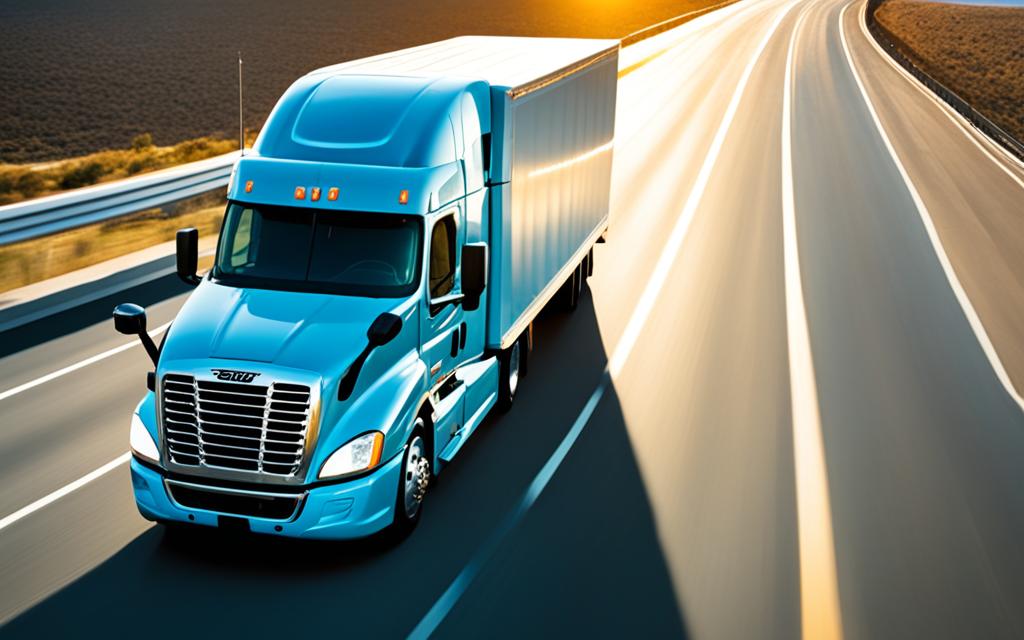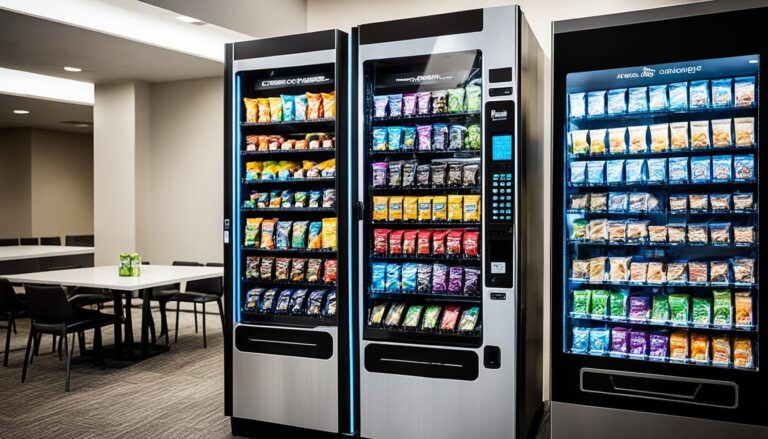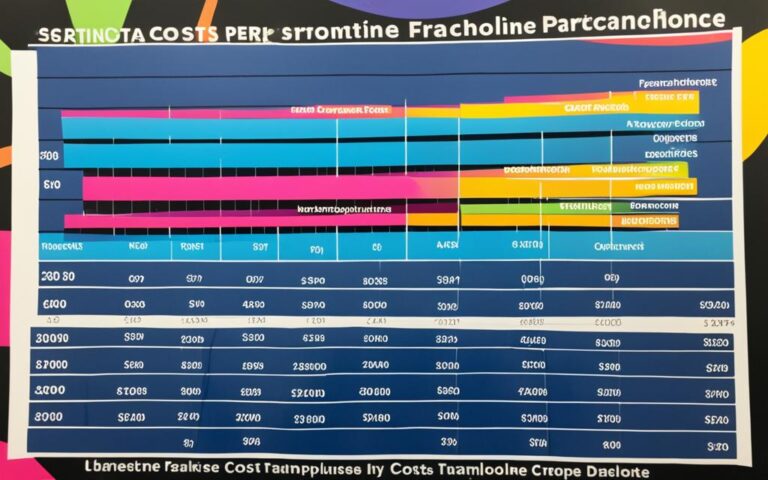Owner Operator vs Company Driver: Trucking Choices
Did you know owner-operators can make $50,000 to $150,000 a year, after costs? Company drivers usually make $40,000 to $80,00012. This big difference shows why it’s important to know the main differences between these two trucking careers. Choosing between being an owner operator or a company driver is a big decision. It affects your money, freedom, and life.
In this article, I’ll explain the pros and cons of each choice. I want to help you understand what each job is like. This way, you can make a smart choice for your future.
Key Takeaways
- Owner operators usually make more money per mile than company drivers, leading to higher earnings.
- Company drivers get job security and don’t have to worry about truck upkeep or finding clients.
- Choosing between being an owner operator or a company driver means picking between being independent and having a steady income.
- It’s key for those thinking of being an owner operator to understand the business side to succeed.
- Company drivers might get extra bonuses and benefits that owner operators have to get on their own.
Introduction to Trucking Careers
Trucking careers offer many chances and challenges for different kinds of people. I see how important truck driving is for our economy. It makes sure goods get to where they need to go fast.
About 70% of truck drivers work for companies, and 30% are their own bosses3. Both types are key to keeping our supply chain running smoothly. This leads to many career paths for those looking to start in the field.
If you’re thinking about becoming a truck driver, it’s good to know about the differences between being an owner operator and a company driver. Owner operators often make 20% to 30% more than company drivers because they take on more risks3. Trucking can be a good job, but it needs careful planning and management to handle its challenges. With the right strategy, many find it rewarding and flexible.
Understanding Owner Operators
Owner operators are key players in the trucking world. They own or lease their trucks and work directly with companies to move goods. This role is more than a job; it’s running a business.
Who are Owner Operators?
Owner operators are self-employed and in full control of their work. They can customize their trucks and set their own schedules. This freedom is a big part of what makes this job special.
They can make a lot more money than company drivers, sometimes up to three times as much4.
The Role of Owner Operators in Trucking
Owner operators play a big role in trucking. They keep most of the load’s value, over 88%5. They handle their own health insurance and business costs, which can be deducted from taxes.
This means they need to save for taxes and cover things like repairs and fuel. Even though they have a lot of control, it’s not easy. They have to deal with costs like commuting if they live far from their work spots. How well they handle these challenges can make or break their success.
Understanding Company Drivers
Company drivers are key in the trucking world. They work for trucking companies and drive vehicles owned by those companies. Their main job is to drive safely, stick to schedules, and follow company rules. They get a steady paycheck and benefits like health insurance and paid vacation. This is different from owner-operators who have to pay for their own truck and repairs.
Who are Company Drivers?
Company drivers are skilled people who handle the logistics of moving goods in company trucks. They like the steady job and regular hours that trucking companies offer. They don’t have to worry about buying or fixing their trucks, which makes their job easier6.
The Role of Company Drivers in Trucking
Company drivers are crucial for moving goods on time and efficiently. They get support from their companies, like training and maintenance help. They also have a good work-life balance, with time off to be with family without worrying about truck issues. Their pay often depends on how well their company does, which can make them feel more secure7.
Owner Operator vs Company Driver: Key Differences
Choosing between being an owner operator or a company driver depends on how much independence and control you want. It also depends on the money you can make and the financial tasks you’ll handle.
Independence and Control
Owner operators have a lot of freedom. They run their own trucking business and make choices about the loads, routes, and schedules. This freedom lets them work at their own speed and pick which jobs to do. But, they must handle all the business tasks, like money and following the rules8.
Company drivers work for a company and follow its rules. They get a steady salary and don’t have to worry about business stuff9. While they have a set schedule, they might have less control over their free time. Owner operators have more work to do but can make their work environment better10.
Income Potential and Financial Responsibilities
Owner operators can make more money than company drivers. In 2023, they made an average of $322,778 a year, more than the $59,925 company drivers made8. They get paid a percentage of the load’s revenue, usually between 25% to 85%. This can lead to higher earnings if managed well8.
But, they have to pay for things like maintenance, insurance, and taxes on their own. This can be tough during slow times10. Company drivers get a steady paycheck and benefits without the business costs9
Income Potential of Owner Operators
Owner operators can earn a lot, making this a great choice for many. They make about $340,000 to $400,000 a year, which is more than company drivers11. After taxes and expenses, they often make over $100,000 a year11. This high income comes from being able to negotiate contracts and choose their routes.
Average Earnings and Expenses
Even with the chance for high earnings, owner operators face big costs. These include things like maintenance, fuel, and insurance. For example, keeping a semi-truck running well costs about $8,000 to $12,000 a year, and fuel is another $50,000 to $70,00011. Taxes and fees like IFTA tax and Heavy Vehicle Use Tax add another $1,600 a year11.
Factors Influencing Owner Operator Income
Many things can change how much an owner operator makes. Fuel prices and market demand can go up and down, affecting earnings12. Costs like insurance and truck registration also play a part, leading to changes in income11. It’s important to manage these costs well to keep making a good income in trucking.
Income Potential of Company Drivers
Looking at the income of company drivers, we see a stable salary range. They make between $40,000 and $80,000 a year, based on their experience and the company13. This shows a steady financial future, unlike the ups and downs of being an owner-operator. Working for a company means a steady paycheck, which many drivers prefer.
Average Salary Overview
Company drivers get paid by the miles they drive. They also get bonuses for tasks like loading and unloading, detention, and performance13. These bonuses can boost their salary, making company driving more attractive. It’s important to know this when thinking about a trucking career.
Benefits and Perks
Benefits are a big deal for company drivers, making their job more satisfying and stable. Companies often offer health insurance, retirement plans, and paid vacation14. These benefits make driving for a company more appealing than being an independent operator.
The salary is great, but the benefits add a lot to the job’s appeal. This mix of salary and benefits draws new people to the industry. For those wondering about the differences between company drivers and owner-operators, check out this source. It offers a detailed look at the choices you have1314.
Job Flexibility and Lifestyle Differences
Job flexibility is a big deal in trucking, especially for owner operators and company drivers. Owner operators can choose their schedules and routes. This freedom lets them control their work life. But, it also means working long hours and handling business tasks.
According to the Federal Motor Carrier Safety Administration (FMCSA), truck drivers can work up to 14 hours straight. This includes 11 hours of driving and 4 hours of other tasks. This can make work and life hard to separate15.
Company drivers have a set work schedule. They don’t own their vehicles and can keep work and home life separate. They get 10 hours of off-duty time per work period, which helps them relax15. The U.S. Bureau of Labor Statistics says truck drivers earn more than many other jobs, making their lifestyle better15.
Job security is also a factor. The American Trucking Association says there’s a shortage of truck drivers. This means better pay and more chances for a good work-life balance for all drivers15. Knowing these differences is key when thinking about a trucking career. Each choice has its pros and cons, fitting different needs and wants.
Compliance Requirements for Owner Operators
As an owner operator, I’ve found that following the rules is a big challenge. The Federal Motor Carrier Safety Administration (FMCSA) sets rules that are key to my business. I must get a USDOT number to keep track of safety info during audits and inspections16. This is part of a bigger set of rules I have to follow.
If I drive in many states or carry taxable fuel, I need an IFTA license16. Also, if my truck is over 55,000 pounds, I need an HVUT certificate from the IRS16. The DOT says new carriers like me must pass a safety audit in the first year16.
Carrying hazardous materials adds more rules to follow. The DOT checks on how I label, train, and document these materials16. Keeping detailed records is key; for instance, I must keep ELD data for six months to show I follow HOS rules16. I also need to fill out a DVIR before and after each day’s work17.
On top of that, I have to follow drug and alcohol testing rules. This means doing tests, keeping driver files, and joining a testing group17. Breaking these rules can lead to big problems I must avoid.

Following these rules is not just about obeying; it’s about staying safe and keeping my business going. Keeping up with yearly inspections and fixing any vehicle issues is vital16. Staying safe and following the rules makes for a successful career as an owner-operator.
Being prepared with compliance is crucial; it helps avoid legal issues.
Compliance Requirements for Company Drivers
As a company driver, it’s key to follow all compliance rules for your safety and the trucking industry’s smooth running. These rules come from your employer’s policies and federal and state laws for trucking. They tell us how to drive safely on the road.
Regulations and Company Policies
Every company has its own set of rules that match federal laws, like those from the Federal Motor Carrier Safety Administration (FMCSA). These rules cover things like vehicle inspections, hours of service, and credential management. Drivers also need regular training to keep up with changing rules and safety tips.
It’s crucial to do regular checks on our vehicles before and after driving to make sure they’re safe. Following these rules helps protect us and others on the road. Drivers must also pass drug and alcohol tests as per safety rules set by the company.
Knowing and following these rules helps us keep our jobs and keeps the trucking community safe. It’s smart to get to know both the industry standards and our company’s rules. This way, we can meet all the daily compliance needs18.
Operational Costs: Owner Operator vs Company Driver
Understanding the costs for owner operators and company drivers is key for those thinking about trucking careers. As an owner operator, I know how fast these costs can add up. Things like maintenance and insurance are big expenses. Truck drivers often pay more than many other jobs, making owning a truck complex19.
Cost Factors for Owner Operators
Owner operators have many expenses that affect their earnings. They handle truck maintenance, including oil changes, new tires, and cleaning supplies, which they can deduct taxes for19. Insurance premiums, leasing fees, and fuel costs also add up, with fuel being partially deductible if out-of-pocket expenses don’t go over $10019. These expenses can be big, especially when fuel prices change. But, owner operators can boost their earnings by managing their freight well and planning ahead20.
Company Driver Costs (or Lack Thereof)
Company drivers have a different financial picture. They don’t pay for vehicle maintenance or insurance, as their employers cover these costs. They also get paid time off, health insurance, and retirement plans, which increases their overall pay20. Their pay is more stable, and they don’t have to worry about the costs of owning a truck. This lets them focus on driving without the stress of extra expenses.
Industry Insights for Trucking Choices
The trucking industry is always changing, thanks to new tech, economic ups and downs, and changes in what people want. Current trends show that trucking made up 80.7% of the U.S. freight cost in 2022, totaling $940.8 billion. That year, about 3.54 million people worked as professional truck drivers, with many being owner-operators, around 1.7 million21.
Current Trends in Trucking
Now, e-commerce is a big deal in trucking, needing fast deliveries and a flexible workforce. About 45% of owner-operators lease out their services, and 44% work on their own22. This shows the many paths people can take in the industry. The average owner-operator made $63,114 in July 2023, but they face rising costs, with expenses going up 22.9% in 202223.
Future of Owner Operators and Company Drivers
The future of trucking looks promising but complex. It’s expected to grow 6% from 2020 to 2030, offering more chances for owner-operators and company drivers21. Yet, owner-operators still face issues like finding enough work, with 21% having trouble finding loads23. New tech will change the industry, so all drivers need to keep up to succeed.
Conclusion
Choosing between being an owner operator or a company driver depends on your goals and financial status. Owner operators have more control over their work and have grown by 5% in the last five years. On the other hand, company drivers get a steady income and save on maintenance costs. They earn about 10% more than owner operators2425.
Looking back, I’ve seen that owner operators are happier with their jobs and have fewer accidents. They are 15% less likely to be in an accident for every million miles driven24. But, they pay 20% more on maintenance and spend 25% less time on paperwork compared to company drivers2425. These differences affect how you experience your work.
It’s important to know these differences when making decisions in the industry. Whether I choose to be an owner operator or a company driver, I’ll make sure it fits my values and lifestyle. This way, I’ll find happiness in trucking.
FAQ
What is the main difference between owner operators and company drivers?
Owner operators run their own business and choose their loads and routes. Company drivers work for a trucking company, operate their vehicles, and get a steady paycheck.
How does the income potential differ between owner operators and company drivers?
Owner operators can make ,000 to over 0,000 a year but must pay for maintenance and fuel. Company drivers earn ,000 to ,000 and get benefits from their employers.
What are the compliance requirements for owner operators?
Owner operators must follow FMCSA rules, including vehicle registration, safety standards, and drug testing. They need to know these rules well to legally operate.
What benefits do company drivers receive?
Company drivers get health insurance, retirement plans, and paid time off. These benefits make their job more satisfying and secure financially.
How does the lifestyle of an owner operator compare to that of a company driver?
Owner operators can pick their schedules and routes but work longer hours and manage themselves. Company drivers have a set schedule, making it easier to separate work from personal life.
What are the operational costs associated with being an owner operator?
Owner operators pay for fuel, insurance, and maintenance, which lowers their earnings. Company drivers don’t have these costs.
What current trends are affecting the trucking industry?
Trends like more online shopping, new tech, and focusing on being green are changing the trucking world. They affect both owner operators and company drivers.
How do job flexibility and work-life balance differ for these two roles?
Owner operators can set their own hours but might struggle with balancing work and life. Company drivers have regular schedules, which helps them keep a better balance.







